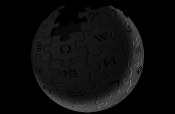 At this point I'm pretty sure everybody is completely sick of hearing about SOPA and PIPA. I know I am. But still, I wanted to talk a little bit about the blackout protest many sites participated in a couple days ago. For starters, I'd like to applaud the efforts of all of the individual sites out there that were a part of the protest. If PixlBit were any bigger, I'd have gladly participated, but we're not in a position where we could afford to be offline for a day. While I'm fully aware of the absolutely horrific side effects these bills could have on the Internet, I'm not sure any of it was truly tangible until Wednesday's blackout.
At this point I'm pretty sure everybody is completely sick of hearing about SOPA and PIPA. I know I am. But still, I wanted to talk a little bit about the blackout protest many sites participated in a couple days ago. For starters, I'd like to applaud the efforts of all of the individual sites out there that were a part of the protest. If PixlBit were any bigger, I'd have gladly participated, but we're not in a position where we could afford to be offline for a day. While I'm fully aware of the absolutely horrific side effects these bills could have on the Internet, I'm not sure any of it was truly tangible until Wednesday's blackout.
Eerily looming atop the Wikipedia homepage on the day of the blackout was a shadowed visage of their iconic logo. It truly felt representative of just how frightening these two bills are for the future of not just the Internet, but the country and the world at large. Simply browsing the web on Wednesday, I felt shackled. The sites I'd frequent to quickly and easily gather information were no longer at my disposal. Sites like N4G, which are a major tool in promoting PixlBit, weren't there and of course, in a world with SOPA, they wouldn't be. Truthfully, neither would PixlBit. A very grim picture was painted - a picture of an Internet that was full of holes, devoid of so much that makes it amazing.
Since the blackout, senators have backed off the bill, and rightfully so. But it's hardly been a win - these bills are merely being postponed. They will come back and they will take on a new form that the Internet will continue to have to build a defense against. And that's the part I think scared me the most on Wednesday. These bills will come back.
Why is that scary? Because that means that this was just the first battle in a war to maintain our rights to free speech and defeat widespread censorship in one of the most influential countries in the world. Let's not kid ourselves - if America were to pass one of these bills, it's not unlikely that other countries will follow suit. Furthermore, US censorship will have a ripple effect regardless of whether or not other countries follow suit. This makes SOPA and PIPA global issues, despite their roots in America.
I guess the feeling I can't shake is that we're seemingly on the cusp of something ... big. I'm not sure what it means, but it's just unsettling and uncomfortable. Thankfully the US government has a tendency to move very slowly, so the collective Internet has time to prepare for the next onslaught.
I doesn't hurt that we have a few juggernauts on our side, like Google and Wikipedia, which makes this feel like a much more manageable fight for the many of us out there with little to no voice. It also gives me immense faith that those who steer the Internet can so easily mobilize people to fight for a worthy cause.
There's no question that piracy is a problem for businesses, but it's hardly a problem I believe the government should have to solve. If the problem is rampant enough, there must be a reason for it - I just wish that content providers falling victim to the problem would put some consideration toward what this reason is. Convenience and cost stand atop a list of the most obvious reasons for piracy - solving either one would have some very measurable impact on the piracy scene (see Steam).
All that aside, I wanted to briefly express my disapproval of the ESA and their stance on the entire SOPA issue. On one side of their mouth they state that they support freedom and rights for games, while on the other they voice their approval of censorship for completely self-serving reasons. I expected better from that association and I feel as a gaming industry it's a huge loss that our main lobbying group completely failed here.
In any event, if you'd like to sound off on this matter, please do so in the comments. This was only a brief synopsis for me, I just wanted to say a little something about the issue in an informal venue.




Comments